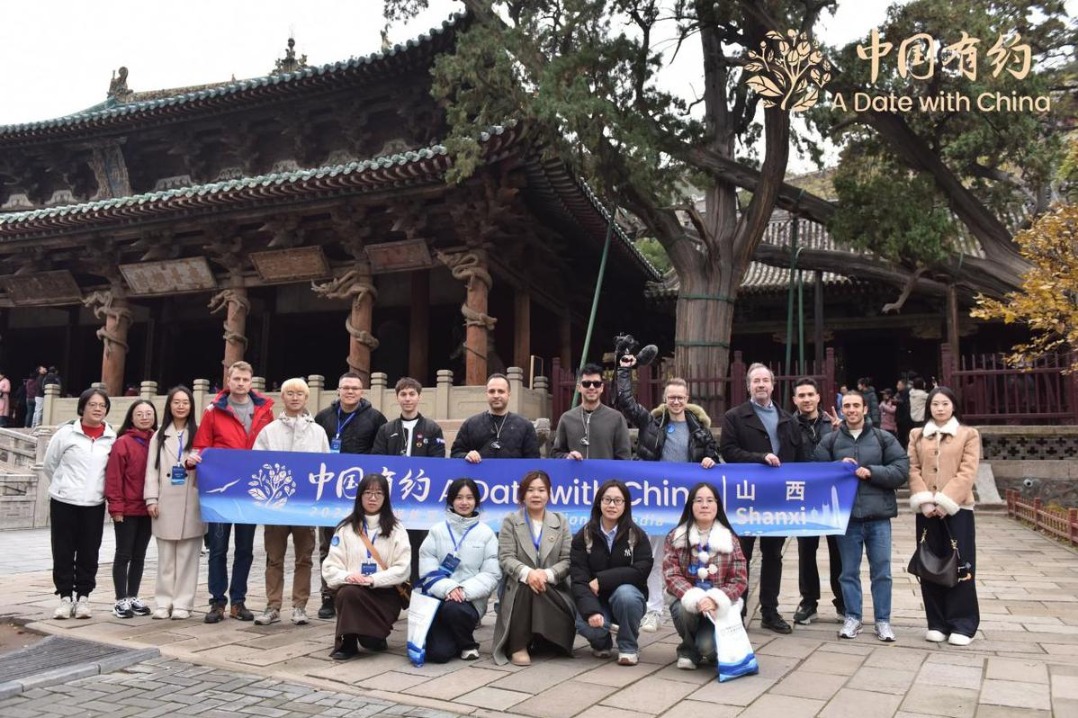AI gives golden opportunities to silver-haired seniors
Adapting to new technologies has ability to embolden and empower older adults

On a crisp early spring afternoon, 89-year-old Teng Quanda held his smartphone and asked it — "Little whale, will my stocks rise again?" — causing the room to erupt with laughter.
This scene is not uncommon at Teng's nursing home in Shanghai, where over 20 silver-haired "students" regularly gather to learn how to use the popular artificial intelligence model, DeepSeek.
"They call it 'little whale' after the app's icon," explained Deng Mingxing, the nursing home's director. "Once they learned how to use it, they bombarded it with loads of health-related questions. Some even joked about living to 150 with the help of AI."
Across China, such interactions highlight seniors' growing acceptance of AI. From health consultations to stock market analysis, they are treating AI as both adviser and companion, seeking assistance in filtering scams, designing wellness plans, or simply enjoying the company of chatty "digital grandchildren".
Smart technology is also playing an indispensable role in addressing challenges in elderly care, with more than 310 million people, or 22 percent of China's population, aged 60 and above as of last year.
China pledged in the 2025 Government Work Report that it will improve the policy mechanisms for the development of elderly care services and industries, foster the growth of industries including embodied AI, and support the extensive application of large-scale AI models.
Chongqing and Shenzhen city governments have launched funding initiatives to advance embodied AI systems, a critical move enabling robots to transition from "digital brains" to physical caregivers and household assistants.
Public data has revealed that a single caregiver is often required to attend to as many as 10 elderly residents in China's nursing homes, indicating a severe shortage of elderly care workers.
Tech giants are racing to fill the gap. In September last year, Tencent's Robotics X Lab unveiled The Five, a human-environment robot designed to advance human-machine collaboration in elderly care scenarios.
Integrated with proprietary technologies such as a hybrid quadruped-wheeled design, large-area tactile sensory skin, multi-fingered dexterous manipulators, and safe physical interaction systems, the robot has demonstrated capabilities in navigating real-world environments, transporting objects, and executing complex tasks through human-robot interaction.
"The Five's core mission is to assist with mobility," said Zhang Zhengyou, Tencent's chief scientist and head of the Robotics X Lab. "It can safely transfer elders from beds to wheelchairs, assist with walking to prevent falls, and help maneuver wheelchairs up ramps."
Leveraging tactile and visual perception systems coupled with recognition, planning and control algorithms, the robot can ensure secure physical interactions.
However, several challenges remain. The human-robot interaction is not yet "natural" enough. For example, The Five cannot recognize emotions accurately, has a limited ability to understand dialects and accents, and moves relatively slowly.
The robots also need to improve their navigation and obstacle-avoidance capabilities. Priced at hundreds of thousands of yuan, cost reduction will be essential for mass production domestically.
Meanwhile, assistive robotics are empowering seniors to reclaim their independence at home. In Chongqing, 70-year-old stroke survivor Zhang Li has regained mobility through a wearable exoskeleton robot purchased by his daughter.
Equipped with multisensory detectors and AI-driven motion analysis, the device predicts movement intent and delivers timely power assistance to the hips and knees.
"These robotic suits are becoming vital tools for seniors and patients recovering from neurological conditions," said Ge Chengjun, marketing director of a medical technology company in Chongqing. By enhancing motor control through real-time data processing, the technology has improved users' autonomy in daily activities.
China has led in the development of international standards for assistive robots, which were released by the International Electrotechnical Commission in March. The standards set benchmarks for health monitoring, emergency response and daily task support.
Researchers have also stressed the urgency of technological breakthroughs. Zhang Yunquan, a researcher at the Institute of Computing Technology of the Chinese Academy of Sciences, emphasized that elderly care robotics hinges on breakthroughs in core technologies requiring robust scientific support.
"Bringing care robots into ordinary households remains a long journey," Zhang said. "But coordinated planning to synchronize technological breakthroughs with market readiness can't wait. It demands urgent action."
AI-enabled elderly care should be deeply integrated with home-based, community and institutional care models while embracing humanistic values, thereby achieving harmony between technological innovation and compassionate caregiving, said Wu Yushao, deputy director of the Fudan Institute on Ageing.
For 72-year-old Wang Fenlan, AI has already enriched her daily life. Whether checking the weather using voice commands, practicing tai chi with smart TV guidance, or consulting "little whale" for recipes, AI is there to assist. "Smart devices aren't just for the young anymore," she said with a smile.
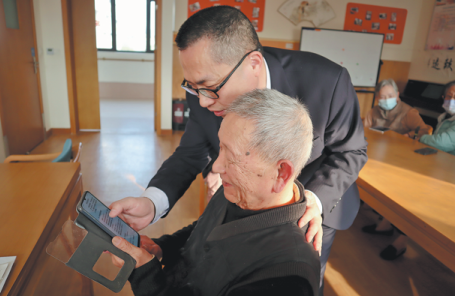
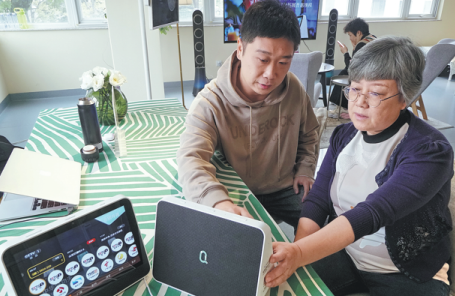
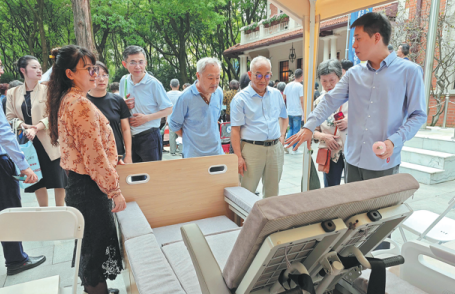
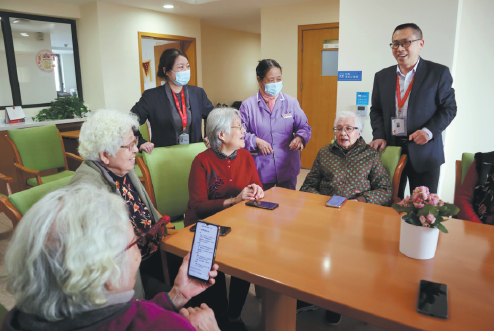
Today's Top News
- Xi urges breaking new ground in advancing rule of law in China
- Dutch govt urged to mend chip dispute
- Macao's heritage sites hold special appeal for games
- China tackles N2O emissions, leading change
- AI should build a future where technology serves people
- Japan bears blame for worsening China ties
















